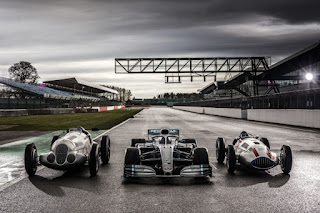Formula One, also known as F1, is the highest class of single-seater auto racing sanctioned by the Fédération Internationale de l'Automobile (FIA). The sport has evolved significantly since its inception in 1950, both in terms of the technology used in the cars and the rules governing the races.
In the early days of F1, cars were relatively simple and races were won by drivers who were able to push their cars to the limit. However, as the sport grew in popularity, teams began to invest more in research and development, leading to the introduction of more advanced technology such as aerodynamics, fuel injection, and turbocharging. These changes resulted in cars that were faster and more powerful than ever before.
In the 1980s and 1990s, F1 cars began to incorporate advanced electronic systems such as active suspension, traction control, and semi-automatic gearboxes. These technologies allowed teams to fine-tune their cars for optimal performance and made racing more competitive than ever.
In recent years, F1 has continued to evolve with the introduction of hybrid power systems, which combine traditional internal combustion engines with electric motors. These systems are designed to improve fuel efficiency and reduce emissions, in line with the FIA's commitment to sustainability. Additionally, the FIA has made several changes to the rules to promote closer racing and improve the show for the fans. These include the introduction of DRS, the Drag Reduction System, which allows drivers to temporarily adjust the angle of the rear wing for improved overtaking, and the use of wider tires which provide more grip and improve the racing action.
Overall, Formula One has gone through a significant evolution since its inception, with new technologies and rules being introduced regularly to improve the performance and safety of the cars, and to make the sport more exciting for fans.

